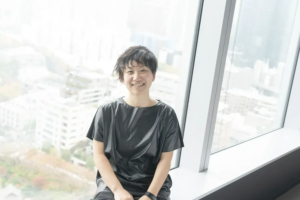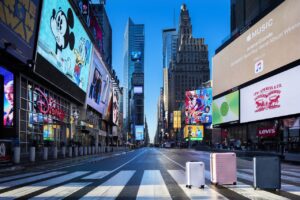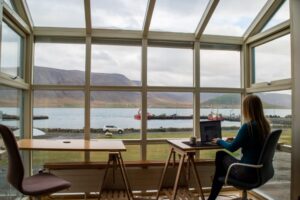Work vacations? European or Japanese, What is the Difference? (Europe side)
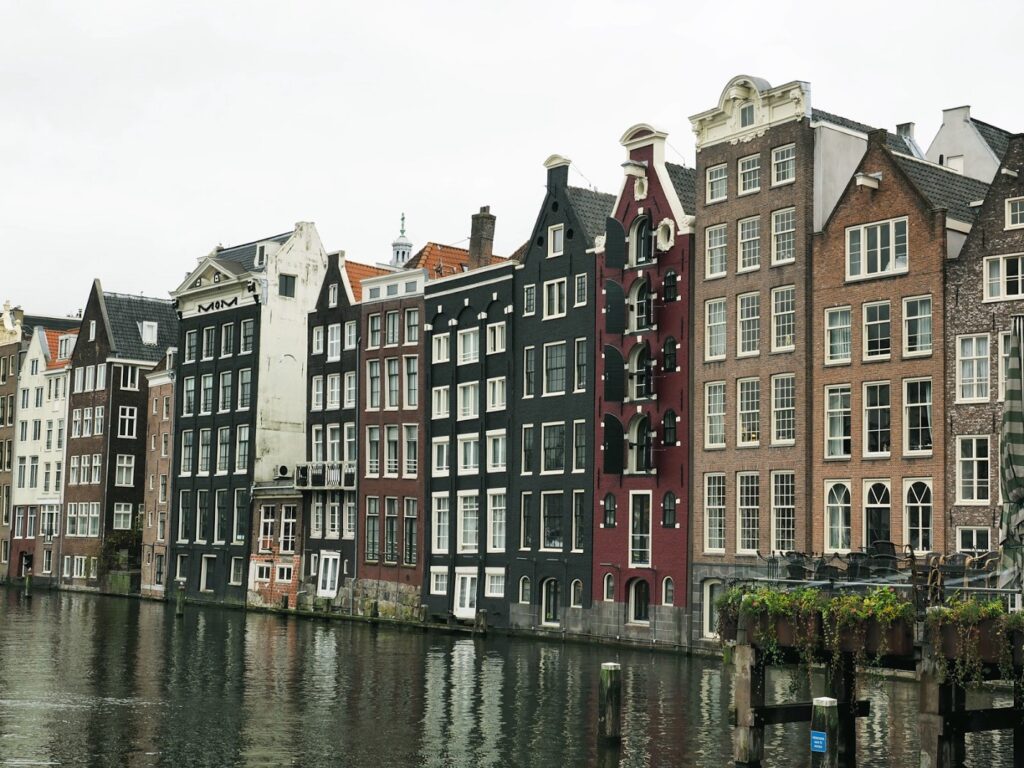
As I write this article, I myself am a practitioner of the workcation. I am working from two locations, Japan and the Netherlands.
The original article “What are the differences between European and Japanese work vacations?” is a part our WORK MILL publication.
With the development of mobile devices, we are now able to work without the constraints of time and place.
In this environment, more and more companies and individuals are practicing “workcations”, a combination of work and vacation.
As I write this article, I myself am a practitioner of the workcation; I moved to Amsterdam, the Netherlands in 2017, and I work from two locations, Japan and the Netherlands.
My experience of workcations in Europe was very stimulating, full of many encounters and discoveries. However, I have yet to practice workcation in Japan.
At that time, I heard from an acquaintance in Europe that Miyazaki City’s martial arts tourism is amazing and that Miyazaki is also advanced in terms of work vacation. So I actually visited Miyazaki Prefecture and took a vacation to the martial arts tourism on offer.
In this article, I would like to start by sharing my experience in Europe and the working style of the Europeans I met, and in the second part, I would like to describe my work vacation in Miyazaki Prefecture and what I learned there.
Workcations can be classified into seven types
According to the Japan Workcation Association, there are seven main types of workcations.
Out of those seven types, I am involved with these three:
(1) Vacation (sightseeing, etc.) type
(2) Base relocation type (real estate type)
(5) New value creation type
As for Type 2, the base relocation type, I obtained a freelance visa in the Netherlands and usually work from my home, cafes, coworking spaces, and shared offices in Amsterdam. In 2021, it will be four full years since I immigrated to the Netherlands, and since new businesses have begun to emerge through my interactions in Europe, I also am involved in the fifth type of workcation, the new value creation type.
I am also involved in type 1, vacation work, as I work at my destination when I travel to other European countries such as Germany and Hungary.
Seeing the northern lights and taking a sauna during workcation in Finland
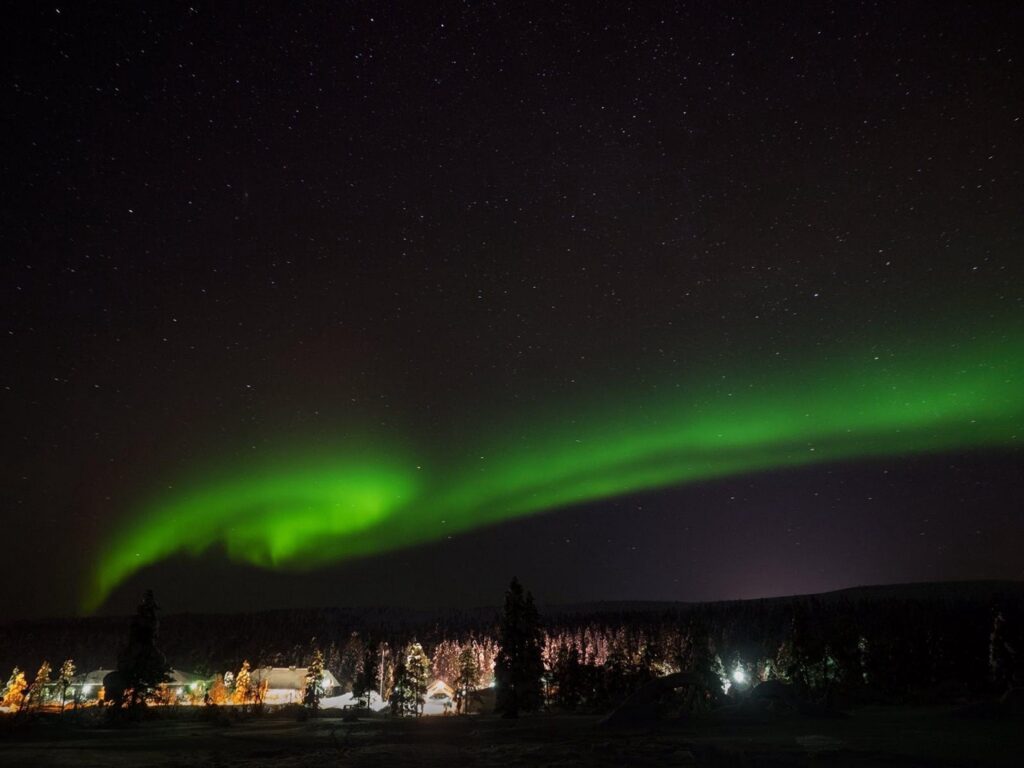
I first encountered a European workcation in Finland in 2015. I heard that the northern lights could be seen in a town in the north of Finland, so I went there to observe them. By chance, a Dutchman I met on my trip said, “I come to Finland every year to work during the aurora season, and I shall go with you.” He is a web designer who runs a small company by himself.
The place where we observed the aurora was a hotel with a ski resort attached, where non-guests can also enjoy meals and a sauna. The place was like a large wooden lodge, and everyone there was working on their MacBooks. I remember how shocked I was that such a way of working existed.
Incidentally, many of the Dutch people around me who practice work vacation are sole proprietors or small business owners, and I feel that many of them work in different places for a change of pace so that they won’t have to work during their vacation. Since most European companies guarantee vacation time, I also feel that there is no need for companies to adopt workcation as a system like in Japan.
Can workcations lead to increased productivity and new businesses?
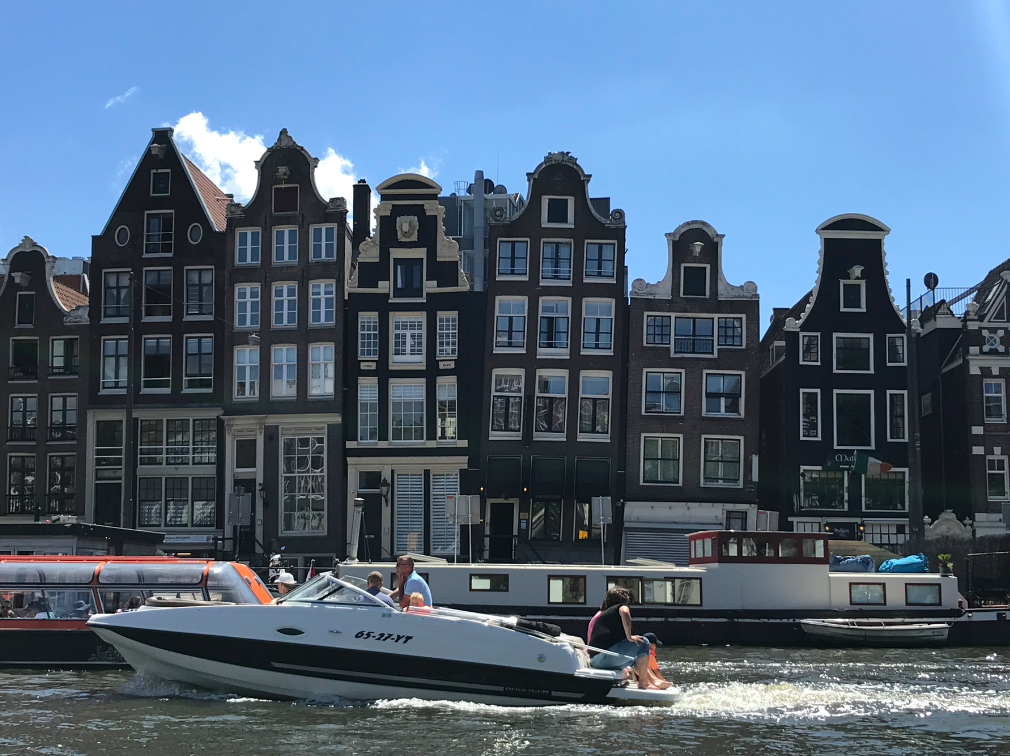
In May 2017, I moved to the Netherlands. The Netherlands is a popular country for Japanese freelancers to move to because it is relatively easy to get a visa, English is spoken, and it is a very comfortable place to live. Working in a land where everything is different — the people, the buildings, the culture — sometimes I get a strange feeling that my senses are sharpened.
1)Productivity Gains
First of all, let’s consider the increase in productivity that comes from having a workcation. It depends on the person, but working in an unusual space will increase your concentration.
The atmosphere of the city and the coworking space are both very different from Japan. Working in such an environment can be expected to stimulate your creativity.
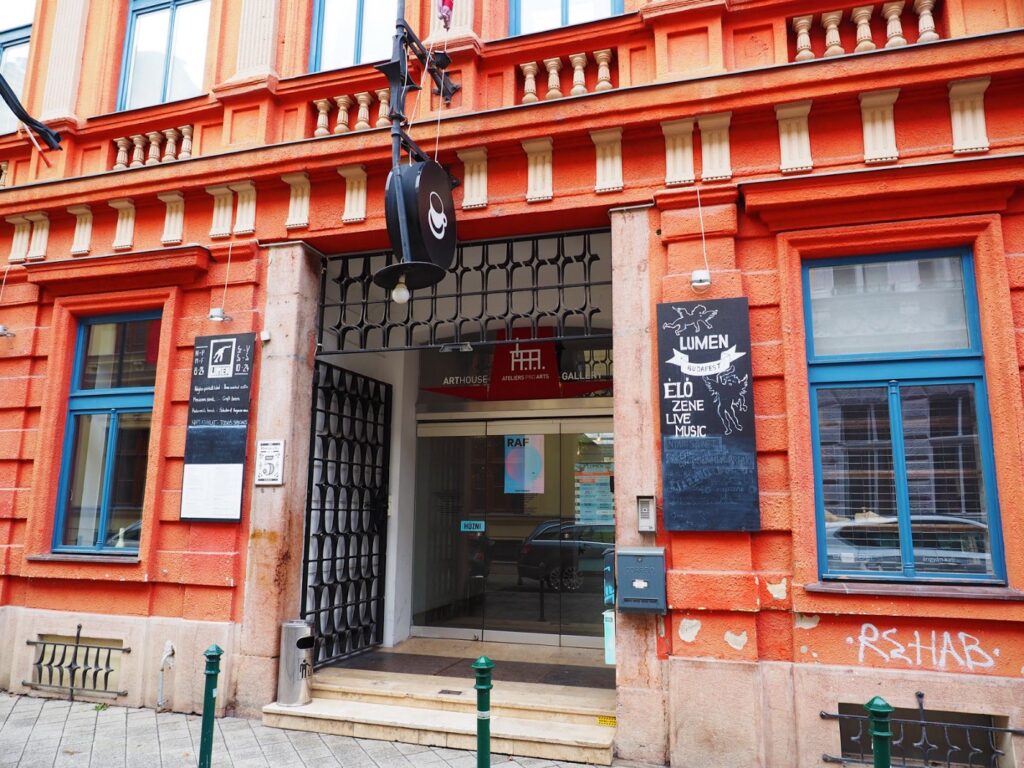
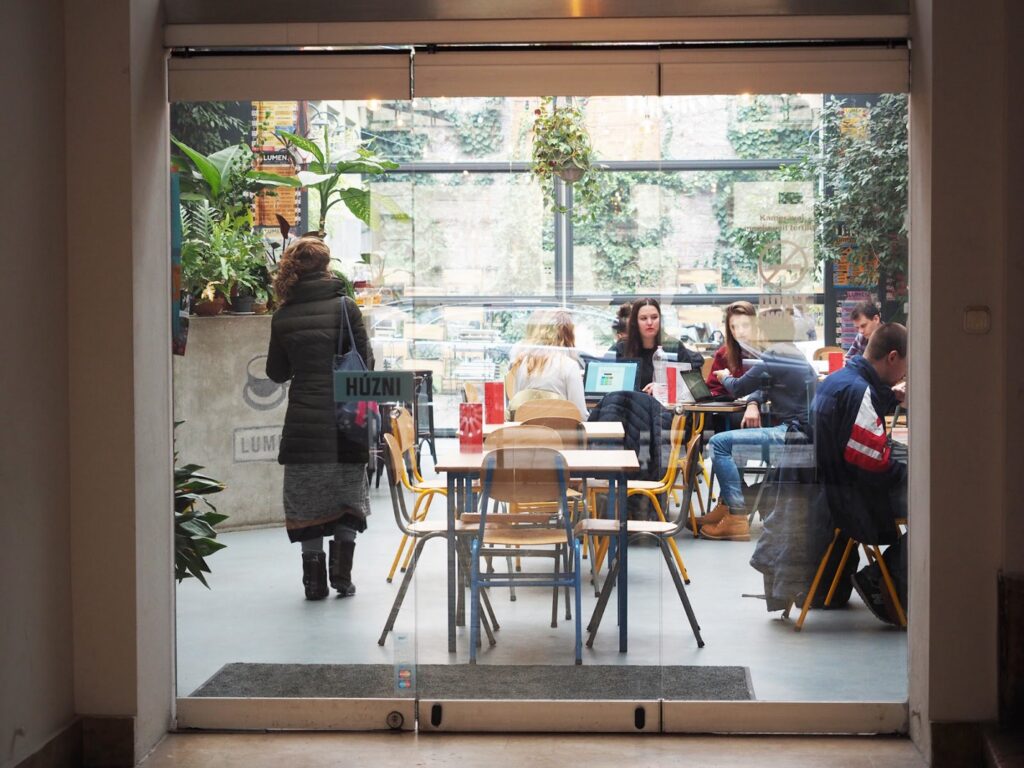
Some people are taking advantage of the time difference to improve their work efficiency. The time difference between the Netherlands and Japan is 8 hours in the winter and 7 hours in the summer. The advantage of this is that you can work without being interrupted by someone else, since the end of the workday in Japan comes around the time you start your morning in the Netherlands.
Some of the Japanese people who have moved to the Netherlands are not only freelancers, but also people who work for venture companies. I’ve heard some say that they’ve gone from a life where meetings used to take up a lot of their time to one where meetings are kept to a minimum in light of the time difference.
It’s hard to manage oneself and communicate remotely; for example, even in a single Slack message, coworkers try their best not to use words that would make the other person feel uncomfortable or uneasy. Meetings in Japan are basically online, but they can introduce themselves by saying, “Today, Mr. XX is joining us from the Netherlands!” This can be a great way to start a conversation.
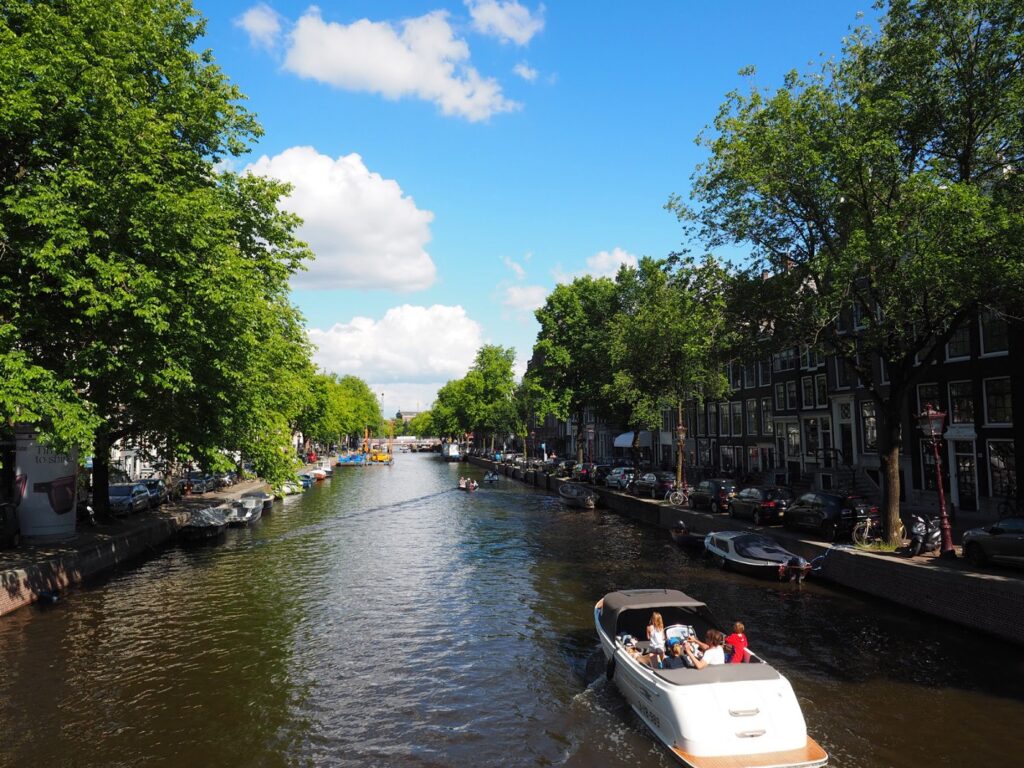
2) New Business Creation
Next, I would like to examine the creation of new businesses. I didn’t know this until I moved to the Netherlands, but the Netherlands is known as a leading country in the circular economy movement and was one of the first countries to decide to shift to a circular economy. My main job was originally to write SEO articles and to market for company-owned media, but moving to the Netherlands gave me a new job opportunity of writing about Dutch companies’ initiatives in the media.
I have also started a new business related to translation. Although it is not well known, martial arts are very popular in Europe. The population interested in kendo is also increasing, and therefore there is an increased need to read technical articles on Japanese kendo. I have been practicing kendo for 20 years, and together with a Dutch kendo practitioner, we took a proposition to the magazine “Kendo Jidai” and started managing an English web magazine version of the original Japanese one.
In addition, a friend I met in the Netherlands sells high-quality wool blankets, and we are now working on selling them in Japan.
All of the aforementioned jobs were things that I had never imagined or planned on doing before I started my work vacation. When I went there unexpected ideas naturally grew out of the relationships I had with the people around me.
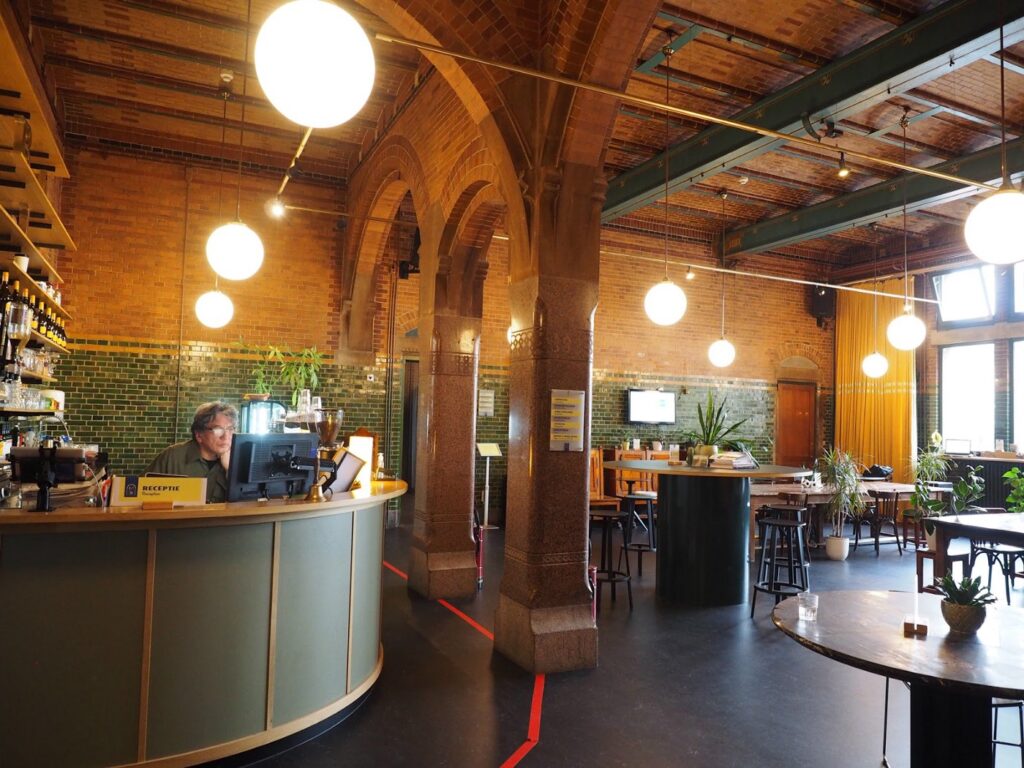
In order to generate new ideas, you need to actively build relationships with the people around you and draw information from them. I have been using coworking spaces since I first moved to the Netherlands, and have continued to interact with the people who work there and the companies that live in the shared offices. At times, I have even conducted simple workshops.
Even if the event itself does not lead to money, I have had people get to know me as a Japanese person, and that has led to jobs.
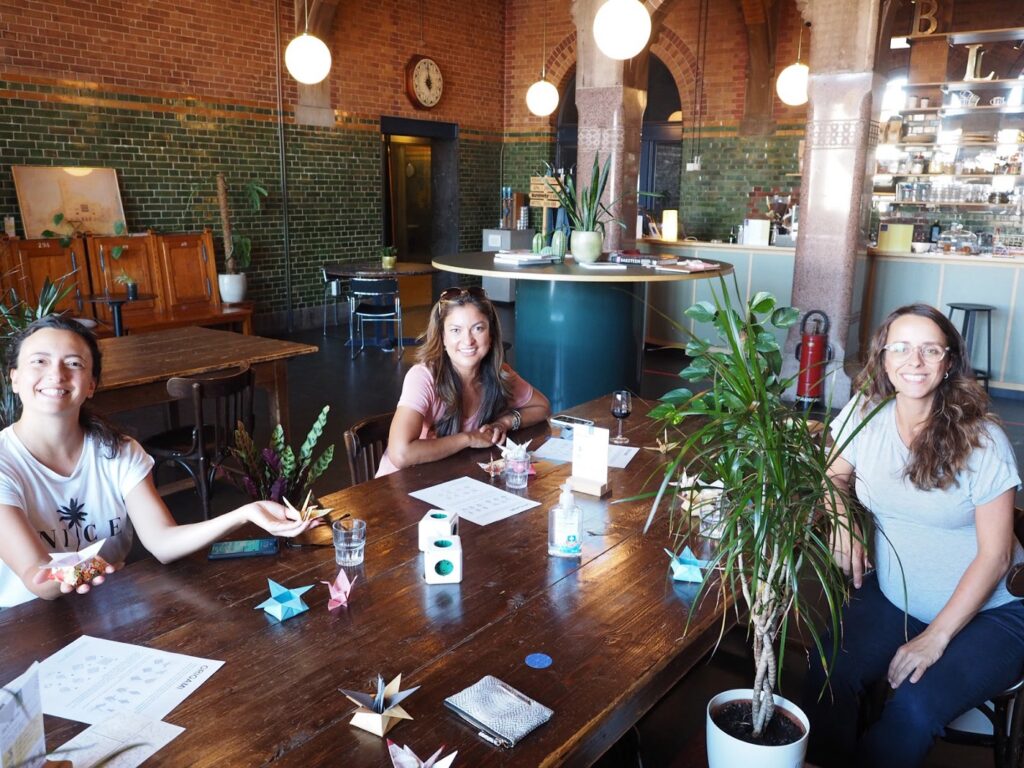
3) Capacity Building: Improving Language Skills
Some things that Japanese companies expect in the practice of workcation are human resource development and skill development. One of the reasons why I decided to move to the Netherlands was to improve my English skills. English is widely spoken in the Netherlands, and I wanted to acquire usable English by actually living and communicating with the local people.
In this respect, I have had success. I couldn’t speak smoothly at first, but now I can make appointments and conduct interviews in English.
Results should be considered over several years
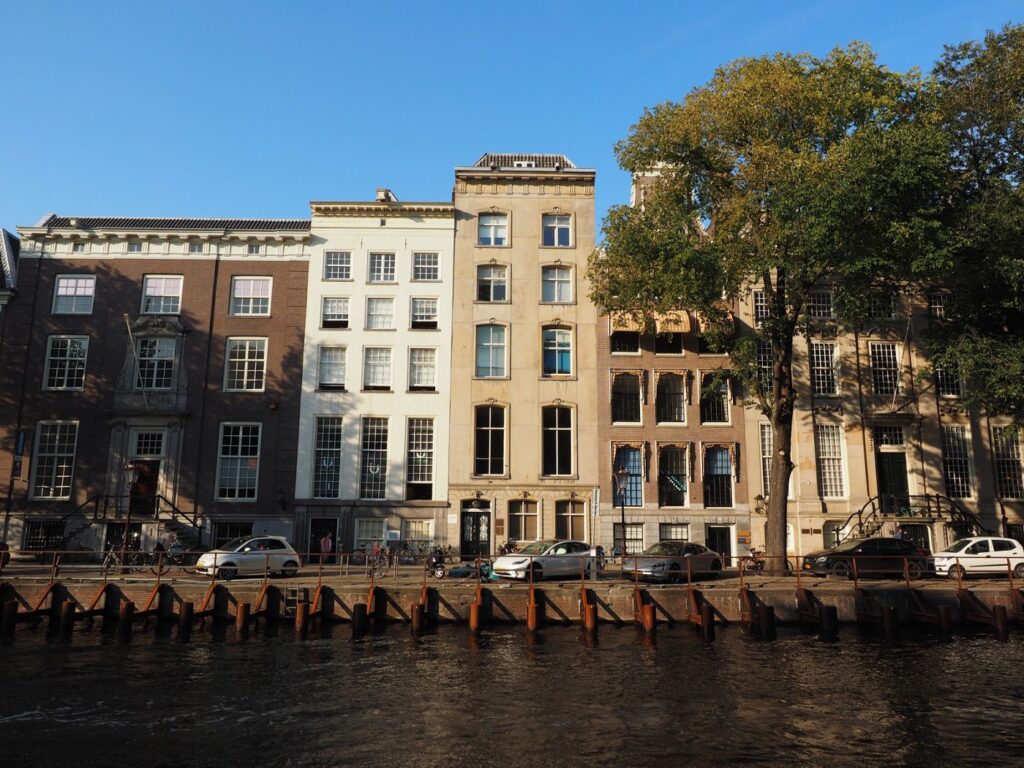
If you ask me if it is a great success in terms of cost-effectiveness, I cannot currently answer “yes” with confidence.
First, let’s consider the cost aspect. If you are going to do an overseas relocation type of work vacation, it will cost you around 1,000,000 yen to get a visa and move to a new place. You also have to consider the time cost of obtaining a visa, finding housing, finding a workspace, etc. There is certainly a language barrier. However, I also experienced an informational barrier caused by my lack of cultural awareness. There were situations where it took me several days to complete a task that would only take me an hour in Japan.
In my case, it was very difficult to predict whether these costs would be borne by the individual or by the company, and how long it would take to make up for those costs. I suffered because I could not see any results until two years after my immigration. By that time, I had established a lifestyle in the Netherlands, and the sense of the unusual faded away. But no matter how hard I tried, I couldn’t become a Dutch person, and I felt frustrated more and more.
By the time I reached the four-year mark, I finally felt as if I had found a way to recoup my costs. This is thanks to the connections I have made with people. By communicating with people I meet, asking them what they do and what values they have, sometimes interviewing them and writing articles about them, and connecting people who seem to have a strong affinity for each other, new jobs have gradually grown.
Impact on personal well-being and lifestyle
In light of the challenges, when I look back and think about whether I am glad I moved from Japan, I can say with certainty that I am glad I did. In my case, I had a strong desire to visit different places and experience different cultures, even if I had to bring my work with me on my days off.
I also want to go to places where I can concentrate the most, taking into account my physical condition of the day, instead of going to the same office all the time. In this respect, I am highly satisfied with my workcation, and I would like to continue practicing it.
Living in a different country has also changed my awareness of the quality of life. One thing that impressed me when I spent time in the Netherlands was the summer vacation. When I was working for a company in Japan, the longest I could take off was a week, and I used to take my vacations with a little bit of anxiety, wondering if it would be okay to take so much time off.
However, the vacation season for Europeans is very long; two or three weeks is the norm, and some people take work off for as long as a month. Right after the first wave of the coronavirus passed and the lockdown ended, people were still going on vacation. I remember how surprised I was. From their point of view, I was a workaholic. They were even worried that I didn’t take enough time off.
I finished work at 6:00 p.m., and the shared office was quiet. Influenced by the way they were enjoying their vacation, I naturally started to go home earlier.
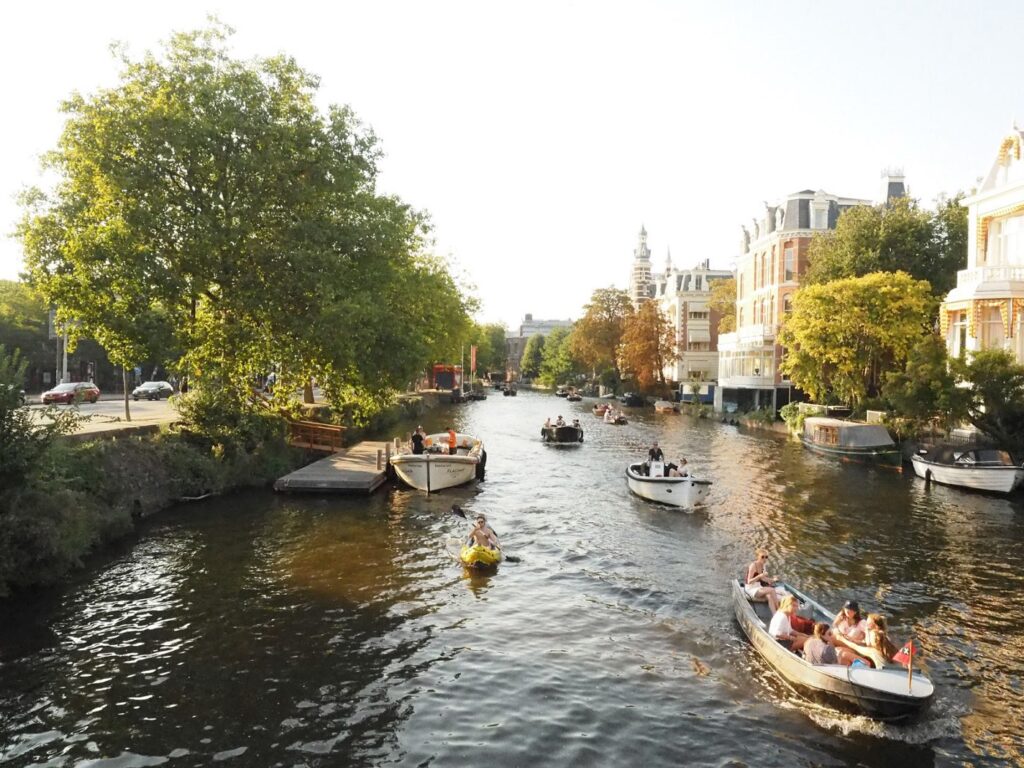
“For a Japanese-style workcation, it is important to accumulate case studies first”
Since Europe is landlocked and employment is not set in stone, I feel that Europeans are not as resistant to moving between countries as Japanese people are. Also, I feel that based on my experience, Europeans treat workcation as both work and vacation, whereas for the Japanese, due to their commitment to work, workcation can be an opportunity to take a break while still staying committed to their job. I felt that it is important to create a work vacation that is uniquely Japanese by reimagining it in a way that is appropriate for Japan, rather than directly incorporating European work vacations into Japan.
From the point of view of a company, you would expect to see tangible results from your investment, but the question remains as to whether a work vacation will bring about significant results immediately. Rather, it would be better to focus on the investment and well-being aspects, such as satisfying employees’ happiness and intellectual curiosity in the long run.
As an employee, it is important to have a sense of cost and awareness that it is not just a vacation, but an opportunity to create something new. I was particularly sensitive to costs because I invested everything from my own funds, but it still took me a long time to recover. While increasing personal happiness, it is important to have the awareness of giving back to the company in some way.
I believe that through practical experiences and an increasing number of workcation examples, we will be able to develop a workcation style unique to Japanese culture.
Text and images credit: Mariko Sato





